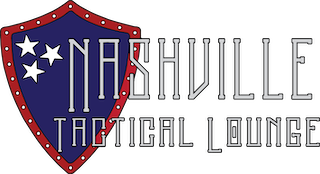The Truth About Silencers: What You Need to Know
Oct 11th 2024
The Truth About Silencers: What You Need to Know
Silencers, also known as suppressors, have long been surrounded by myths and misconceptions. Whether you’ve seen them in action-packed movies or heard them discussed in debates, the reality behind silencers is often misunderstood. In this post, we'll clear the air on what silencers are, how they work, and why many firearm enthusiasts and professionals choose to use them.
What Is a Silencer?
A silencer, or suppressor, is a device that attaches to the barrel of a firearm to reduce the noise and muzzle flash generated when a gun is fired. Contrary to popular belief, silencers don’t completely eliminate the sound of a gunshot. Instead, they significantly reduce the decibel level, making the sound less harmful to hearing and more difficult to detect from a distance. The term “silencer” can be misleading, which is why many prefer to use the more accurate term "suppressor."
How Do Silencers Work?
To understand how a silencer works, you need to understand the physics of gunfire. When a gun is fired, high-pressure gas from the exploding gunpowder rapidly expands, pushing the bullet out of the barrel. This rapid release of gas creates the loud “bang” we associate with gunshots.
A suppressor is essentially a series of internal baffles that slow down and cool these expanding gases before they exit the barrel. This reduction in gas velocity is what decreases the sound. It’s similar to how a car’s muffler quiets engine noise.
While the bullet still breaks the sound barrier (causing a supersonic crack), the overall noise level can be reduced by 20 to 30 decibels or more. This brings the sound down to a safer, more manageable level for the shooter and bystanders.
The Benefits of Using a Silencer
- Hearing Protection
One of the primary reasons many shooters opt for suppressors is hearing protection. Even with proper ear protection, repeated exposure to gunfire can lead to long-term hearing damage. Suppressors reduce the sound to a level that is less likely to cause harm, especially in situations where earplugs or earmuffs might not be practical. - Reduced Recoil
A suppressor can also help manage recoil by trapping and redirecting some of the gas that propels the bullet. This makes shooting more comfortable, especially for those using high-powered rifles. Reduced recoil can improve accuracy, making it easier for the shooter to stay on target for follow-up shots. - Minimized Muzzle Flash
In low-light conditions, muzzle flash can temporarily blind a shooter and reveal their location to others. Suppressors reduce muzzle flash, making it easier to shoot accurately at night or in other low-visibility situations. - Better Accuracy
By reducing the noise and recoil associated with shooting, silencers allow for more precise and controlled shots. Many hunters and long-range shooters use suppressors to increase their accuracy and minimize disturbance to surrounding wildlife. - Increased Comfort in Training and Range Use
For those who regularly visit shooting ranges, using a suppressor can make the experience much more comfortable. Reduced noise levels mean less discomfort for both the shooter and those nearby, creating a more enjoyable shooting environment.
Common Myths and Misconceptions About Silencers
- "Silencers Make Guns Completely Silent"
One of the biggest myths perpetuated by Hollywood is that a silencer can make a gunshot completely silent. In reality, a suppressor reduces the noise, but most guns will still produce a sound comparable to a loud clap or a car door slamming. The sound is quieter, but it’s far from silent. - "Only Criminals Use Silencers"
This misconception stems from movies and media portrayals, but the reality is far different. Suppressors are legal in many countries and U.S. states, and they are primarily used by law-abiding citizens, hunters, sport shooters, and military personnel. In fact, suppressors are subject to strict regulation and require background checks and approvals to purchase in the U.S. - "Suppressors Reduce the Power of a Gun"
Suppressors don’t reduce the power or effectiveness of a firearm. The bullet exits the barrel at the same speed and power. The suppressor only works to reduce the noise and muzzle flash by managing the expanding gases.
Legal Considerations for Owning a Silencer
Silencers are legal in many parts of the world, but they are highly regulated, especially in the United States. In the U.S., the Bureau of Alcohol, Tobacco, Firearms and Explosives (ATF) oversees the regulation of suppressors. If you're interested in purchasing a silencer, here's what you need to know:
- National Firearms Act (NFA)
Suppressors are classified as NFA items in the U.S. This means they fall under the same category as fully automatic weapons, short-barreled rifles, and other highly regulated items. To purchase one, you’ll need to complete ATF Form 4, pass a background check, and pay a $200 tax stamp fee. - State Laws
While federal law allows the ownership of suppressors, some states have their own restrictions or outright bans. It's essential to check your local laws before attempting to purchase or use a suppressor. - Trusts and Corporations
Some firearm owners create trusts or corporations to hold NFA items, which can simplify the transfer process and allow multiple individuals to legally possess the item.
Conclusion: Should You Get a Silencer?
Suppressors offer numerous advantages for shooters, from protecting hearing to improving accuracy and reducing recoil. Whether you're a hunter, a sport shooter, or someone who enjoys spending time at the range, a silencer can make your shooting experience safer and more enjoyable.
However, it's important to remember that silencers are not as quiet as movies make them out to be. They reduce the sound but don’t completely eliminate it. If you're considering purchasing a silencer, make sure to understand the legal requirements in your area and follow all necessary steps to obtain one legally.
Have questions about silencers or want to share your experience with using one? Drop a comment below!

